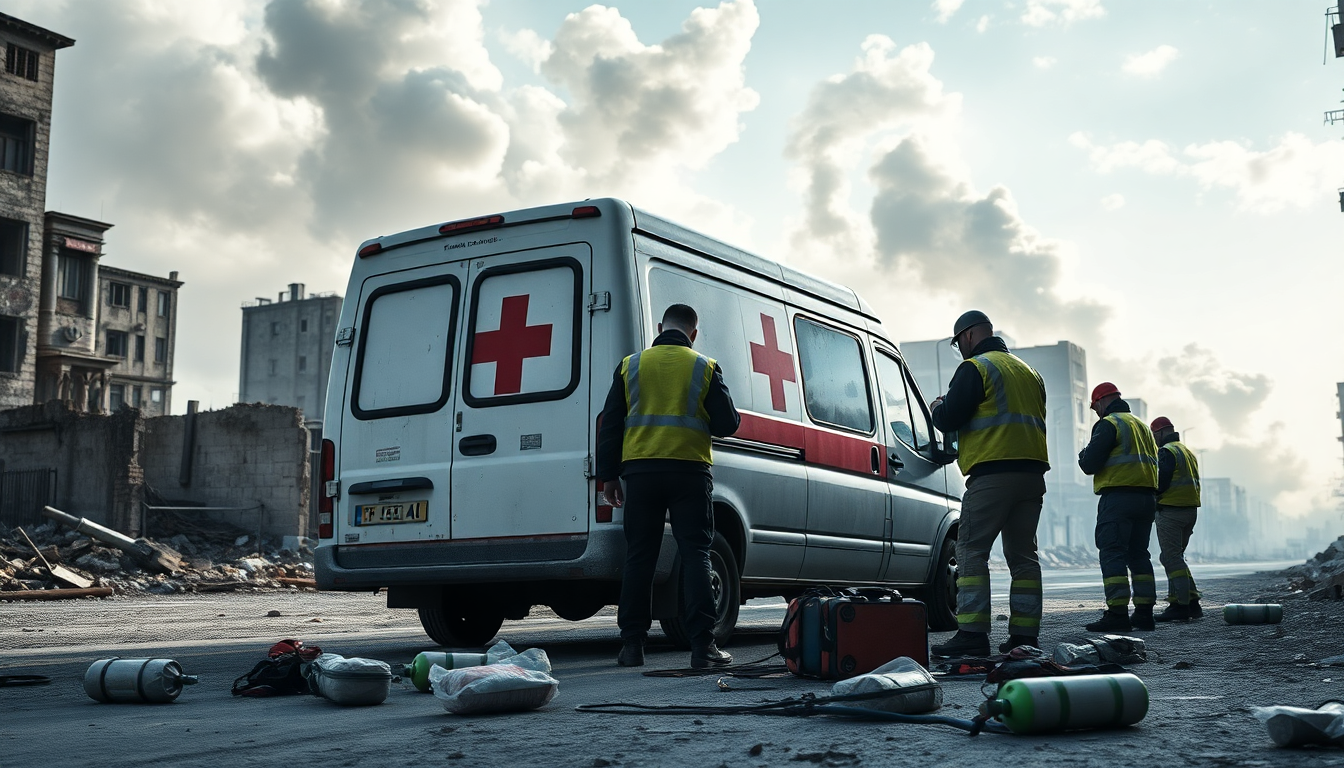Table of Contents
The ongoing conflict in Ukraine has created a perilous environment for healthcare workers, especially emergency responders who are on the front lines of providing medical care. Have you ever considered what it’s like for medical personnel in a war zone? Recent reports reveal a shocking reality: ambulances are being deliberately targeted by drones, putting both healthcare workers and the patients they assist at significant risk.
This situation raises serious questions about the safety of healthcare services in a war-torn nation and the broader implications for civilian health amidst the chaos.
Ambulance attacks: A grim reality
Take the case of Elina Dovzhenko, an emergency doctor in the northeastern city of Kupiansk.
She narrowly escaped a drone strike that hit her ambulance while she was attending to patients. Unfortunately, this incident isn’t just a one-off; it illustrates a disturbing trend where emergency services are increasingly under threat from aerial attacks. According to the World Health Organization (WHO), around 200 ambulances have been damaged or destroyed each year due to Russian shelling since the conflict intensified in 2022.
Can you imagine the fear and uncertainty these healthcare workers face every day?
Healthcare workers in Ukraine are now facing risks that are three times higher than those of their counterparts in non-conflict areas. The systematic targeting of ambulances is part of a broader strategy aimed at dismantling Ukraine’s healthcare infrastructure, depriving millions of necessary medical assistance.
This tactic intensifies the already dire circumstances for civilians, with many reporting a decline in their health since the onset of the war. In fact, statistics show that 68% of Ukrainians have experienced a deterioration in health, and 46% have expressed concerns about their mental well-being.
The WHO has confirmed thousands of attacks on healthcare facilities and personnel, marking this crisis as one of the most severe humanitarian emergencies globally.
The impact on healthcare accessibility
The implications of these targeted attacks extend far beyond immediate physical dangers.
The destruction of ambulances and healthcare facilities severely limits access to medical care, worsening both physical and mental health challenges for the population. Have you thought about how stress and anxiety can affect daily life? The ongoing conflict has led to increased mental strain among civilians, particularly among vulnerable groups like the elderly, who often refuse to evacuate their homes despite the risks.
Healthcare workers, such as paramedic Denys Raievskyi, share harrowing experiences of navigating this dangerous landscape where drone strikes are a constant threat. Their commitment to providing care is unwavering, yet significant obstacles hinder their ability to deliver timely medical assistance. The fear of secondary attacks prevents them from treating patients on-site, especially those injured by drone strikes. It’s a tough situation; how can you help someone when your own safety is at risk?
Moreover, the use of advanced military technology by Russian forces complicates the situation even further. Portable electronic jamming systems that once provided some safety for emergency teams are now ineffective against drones equipped with fiber-optic cables. This evolution of tactics means healthcare workers must continually adapt their strategies to stay safe while ensuring continuity of care.
Looking ahead: The resilience of healthcare workers
Despite these overwhelming challenges, international relief organizations are stepping up to support Ukraine’s healthcare system. Groups like Project Hope are actively involved in providing essential resources, such as bulletproof ambulances and protective gear for healthcare workers. Their resilience in the face of adversity is inspiring, and maintaining operational capacity is crucial for the well-being of those still residing in conflict zones.
As the conflict drags on, the future of healthcare in Ukraine remains uncertain. The persistent threats to emergency services highlight the urgent need for comprehensive strategies to protect healthcare workers and ensure that civilians can access medical care. International attention and support are vital in addressing the humanitarian crises resulting from these attacks, fostering an environment where healthcare can function amidst chaos.
Ultimately, this situation calls for a concerted effort to safeguard the lives of those who dedicate themselves to saving others, even in the most challenging circumstances. Isn’t it time we recognized the bravery of these healthcare heroes and supported their mission?





